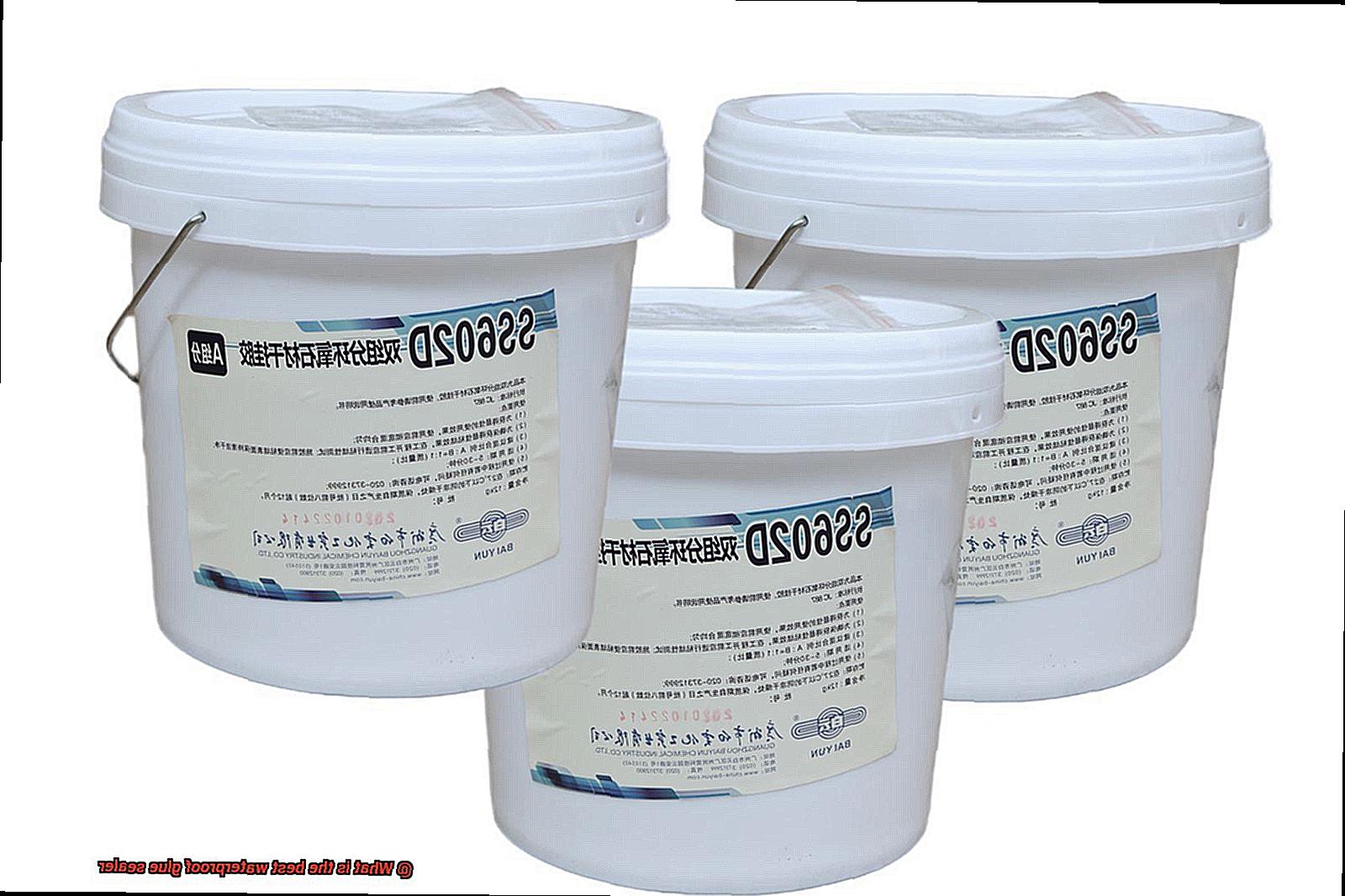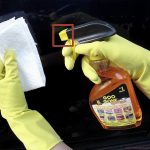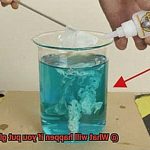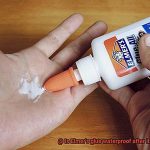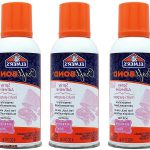Are you tired of glue sealers that can’t handle the elements? Fed up with failed projects or repairs due to choosing the wrong sealer? Fear not. In this blog post, we’ll explore the world of waterproof glue sealers and reveal the top options available on the market today.
When it comes to DIY projects or repairs, a waterproof glue sealer is essential. But not all sealers are created equal. That’s why we’ve done the research for you and compiled a list of the best options that have been put to the test and proven to withstand water, moisture, and extreme temperatures.
So what sets these glue sealers apart from others? Not only are they waterproof, but they also offer strong bonding capabilities, flexibility, and can be used on a variety of surfaces. Whether you’re fixing a leaky roof, repairing outdoor furniture or creating a unique DIY project, having a reliable waterproof glue sealer in your toolkit is crucial.
So, let’s get started.
What is a Waterproof Glue Sealer?
Contents
A waterproof glue sealer is here to save the day.
This type of adhesive is specifically designed to provide a strong and permanent bond while also being resistant to water and moisture. Whether you’re working on an outdoor project, a marine application or in an area with high humidity, a waterproof glue sealer is the perfect solution.
You’ll find several types of waterproof glue sealers available on the market, each with its unique properties and benefits. If you need exceptional strength and durability for heavy-duty applications such as boat building or construction projects, epoxy glue sealers are the way to go. Similarly, polyurethane glue sealers are highly durable and often used in automotive or aerospace applications.
For those seeking fast-drying adhesives that can bond a wide range of materials, cyanoacrylate glue sealers (aka superglue) may be a great option. However, they may not be as resistant to water and moisture as other types of glue sealers.
If you need highly flexible adhesive that can withstand extreme temperatures and weather conditions, silicone-based glue sealers are your best bet. They are often used in outdoor applications such as sealing windows or repairing roofing materials.
Types of Waterproof Glue Sealers
There are several types of waterproof glue sealers on the market, each with unique features and benefits to suit different applications.
Polyurethane-based glue sealers are the most popular type, and for good reason. They offer excellent water resistance and strong bonding properties, making them perfect for outdoor projects. Plus, they can be applied to a variety of surfaces, including wood, metal, plastic, and concrete.
If you’re working on a project that will be exposed to high levels of moisture, epoxy-based glue sealers are your best bet. They’re known for their strong bonding properties and resistance to both water and heat. This makes them ideal for use in areas like bathrooms and kitchens.
Need to seal gaps or joints in surfaces like tiles, glass, or metal? Look no further than silicone-based glue sealers. These sealers are highly resistant to water and extreme temperatures, making them perfect for areas with high moisture or heat exposure.
For interior applications where water resistance isn’t as critical, acrylic-based glue sealers are a great choice. They’re easy to apply and dry clear, making them ideal for use on surfaces like paper, cardboard, and fabric.
No matter which type of waterproof glue sealer you choose, it’s important to select the right one for your specific application and surface. Be sure to follow the manufacturer’s instructions carefully for the best results.
Advantages and Disadvantages of Each Type of Glue Sealer
With so many types of glue sealers available, it can be challenging to know which one to pick. Fear not, we’re here to help. Let’s delve into the advantages and disadvantages of each type of glue sealer to make your decision easier.
First up is epoxy glue sealer. This glue sealer is incredibly strong and durable, making it an excellent choice for various surfaces. Once cured, it’s also waterproof and dries clear, which is perfect for projects where appearance is essential. The only downside is that it can be tricky to work with due to precise measurements needed, and it takes a while to cure.
Next, we have polyurethane glue sealer, which provides versatility as it can bond to different surfaces and is waterproof once cured. However, this glue sealer can be messy to work with as it expands as it cures. Additionally, the strong odor requires proper ventilation when being used.
Silicone glue sealer offers flexibility for surfaces that are subject to movement or vibration, such as automotive applications. It’s also waterproof and heat-resistant, which makes it ideal for various projects. However, it may not adhere well to specific surfaces such as metal or glass. Another disadvantage is that you cannot paint over silicone glue sealer.
Lastly, cyanoacrylate glue sealer or super glue dries quickly and provides a robust bond on different surfaces. It’s perfect for small repairs and touch-ups, making it a versatile option. However, it’s not waterproof and has a short shelf life, so proper storage is essential.
Factors to Consider When Choosing the Best Waterproof Glue Sealer
Look no further than a waterproof glue sealer. However, with so many options available, how do you choose the best one? Don’t worry; we’ve got you covered. When selecting a waterproof glue sealer, several critical factors should be considered to ensure that you make an informed decision.
Firstly, think about the surface you will be applying the glue sealer to. Each surface requires a specific type of glue sealer, so it’s crucial to choose a product that is designed for your particular application.
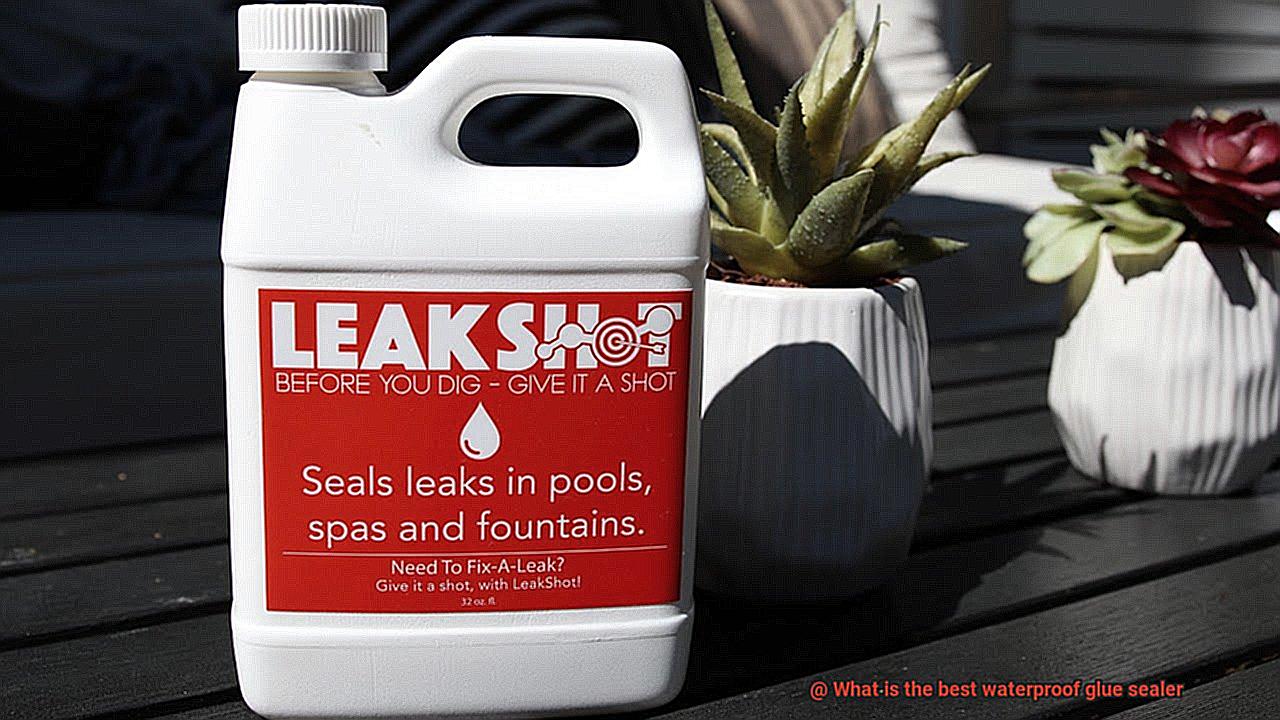
For instance, if you’re sealing wood, you should opt for a glue sealer formulated for use on wood surfaces. Similarly, if you’re sealing metal, choose a product that is designed for use on metal surfaces. By picking the right type of glue sealer for your surface, you’ll ensure that it bonds effectively and provides optimal protection.
Another essential factor to consider is the strength and durability of the glue sealer. You want a product that can handle regular use and exposure to water and external factors.
However, it’s equally important to choose a product that is flexible enough to move with the surfaces it’s applied to without cracking or breaking. This ensures that your sealant remains effective over time and doesn’t deteriorate prematurely.
Lastly, when searching for a glue sealer, look for products that are resistant to water and other environmental factors. You want a product that can withstand harsh conditions such as wet environments or high humidity areas. By choosing a product with high water resistance, you can be confident that your sealant will remain effective and protect your project from water damage.
Tips for Using Waterproof Glue Sealers
Choosing the Right Waterproof Glue Sealer
When it comes to using waterproof glue sealers, selecting the right one for your project is critical. Not all waterproof glue sealers are created equal, and some may work better on certain materials than others.
Epoxy and polyurethane are considered the most durable options for outdoor use, while cyanoacrylate and silicone are better suited for indoor applications where exposure to water is minimal.
By understanding the properties of each type of waterproof glue sealer, you can choose the best option for your project to ensure a strong and long-lasting bond.
Ensuring Clean and Dry Surfaces
Achieving a strong bond with waterproof glue sealers requires clean and dry surfaces. Any dirt, dust, or moisture can weaken the bond and cause the glue to fail. To ensure clean surfaces, wipe down the surfaces with a clean cloth or use a mild detergent to remove any stubborn grime. It’s crucial to ensure that the surfaces are dry before applying the sealer to prevent interference with the bonding process.
Applying the Glue Sealer Evenly
When applying waterproof glue sealer, less is often more. It’s recommended to use a thin layer and apply it evenly across the surface.
Too much glue can lead to excess buildup and affect the appearance of the finished product. Follow the manufacturer’s instructions for application and drying times to ensure that you are using the right amount of product.
Allowing Sufficient Curing Time
Patience is key when it comes to using waterproof glue sealers.
Rushing the curing process can lead to a weak bond and cause the sealer to fail. Once you’ve applied the glue sealer, allow sufficient curing time before using or handling the bonded item.
The curing time can vary depending on the brand and type of glue sealer used, so refer to the manufacturer’s instructions for specific guidelines.
Inspecting the Bonded Surface
After the glue sealer has dried, it’s essential to inspect the bonded surface to ensure that it has fully cured and is holding strong. Check for any weak spots or areas where the seal is not secure. If necessary, apply additional sealer to reinforce the bond.
By following these tips, you can ensure that your waterproof glue sealer is working as effectively as possible and producing the best possible results for your project.
B1rAfRQoPyk” >
Conclusion
To wrap it up, choosing the right waterproof glue sealer is crucial for any DIY project or repair that requires a strong and long-lasting bond. With countless options available in the market, it’s essential to comprehend the different types of glue sealers and their unique properties and benefits.
Whether you need exceptional strength and durability for heavy-duty applications, fast-drying adhesives to bond a wide range of materials, or highly flexible adhesive to withstand extreme temperatures and weather conditions, there is a waterproof glue sealer that can cater to your specific needs.
When picking out a waterproof glue sealer, it’s vital to consider factors such as the surface you will be applying it to, its strength and durability, and its resistance to water and other environmental factors. Additionally, following some tips for using waterproof glue sealers such as ensuring clean and dry surfaces, applying the sealer evenly, allowing sufficient curing time, and inspecting the bonded surface can help ensure optimal results for your project.

